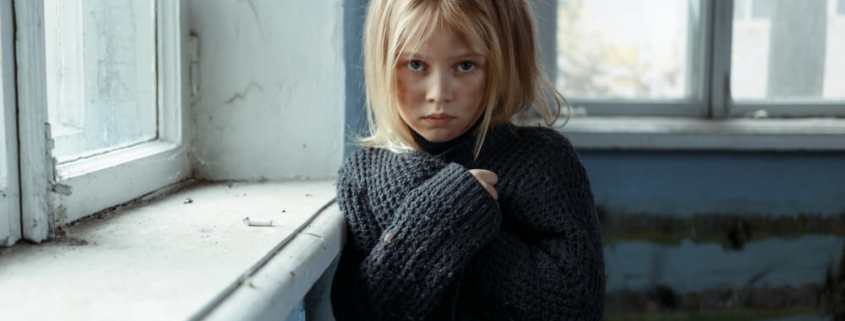Can Child Neglect Mean Jail Time?
The Alabama Department of Human Resources describes child neglect as failure of the parent or guardian to provide adequate food, shelter, clothing, education, or medical treatment to a child as well as general maltreatment of a child. Alabama law also requires people in a position of trust with the child to report suspected child abuse or neglect to the proper authorities. This includes teachers, doctors, religious workers, and childcare workers at a minimum. People in these positions could also face legal consequences for knowing of potential abuse or neglect and failing to report it.
Neglect is the Most Common Form of Child Abuse
When many people think of child abuse, visions of physical battering or sexual molestation come to mind. While these are indeed serious crimes, passive neglect of children is far more prevalent. Neglect is also a very serious crime with lasting consequences. In 2015, 70 percent of children who died due to mistreatment from parents or guardians died because of neglect. Below we explore some of the most common categories of neglect in greater detail.
- Educational Neglect: This can occur when a parent or guardian doesn’t enroll a child in school or allows the child to miss many days when he or she is not ill. People do have the right to homeschool in all 50 states, but they must provide documentation on their lesson plans and show that their children are making adequate progress. Some families place a lower emphasis on education because they need the child at home to help earn an income.
- Medical Neglect: This entails failing to seek timely medical care or outright refusing to obtain care that a child needs for his or her medical condition. The law makes some allowance for parents or guardians whose sincere religious beliefs prevent them from seeking certain medical treatments for their child. These parents or guardians are not automatically deemed negligent, but the court can still order them to obtain a certain medical treatment for a child when it determines that the treatment in his or her best interests.
- Physical Neglect: As the most common form of child neglect, this can include failing to provide a child with adequate food, shelter, sanitary living conditions, and clothing. A parent or guardian who leaves a child alone for several days can be guilty of this, as can someone who habitually denies a child these basic rights.
- Psychological Neglect: This is the hardest category of neglect to prove because all parents and guardians become frustrated at times and can act in less than ideal ways towards their children. Parents and guardians cross the line into psychological neglect when they resort to frequent humiliation, threats, ignoring the child’s basic need for love and attention, verbal abuse, and isolating the child from people who could offer him or her support.
Regardless of the type of neglect, the impact on the child’s physical, intellectual, and mental health can be devastating and last for a lifetime. The more severe the neglect, the more supportive services such as psychological counseling and remedial education the child will need to help overcome it.
A Person Guilty of Child Neglect May Face Jail Time
Reports of child neglect in Alabama should go to the Alabama Department of Human Resources or a local police department. Once the state receives a report, it assigns a worker to investigate the case. While the goal is typically to offer parenting help and keep the family together, this is not always possible. Sometimes the neglectful actions are so serious that the state must remove a child from the home of his or her parents or guardians and place the adult under arrest.
A conviction of neglect of a child can be either a misdemeanor or a felony depending on the severity and whether it’s a repeat offense. The maximum penalty for this charge is up to five years in jail. A judge can also impose a sentence of up to five years of probation and a fine not more than $5,000.
Has Child Neglect Affected Your Family?
Whether you or your partner face charges or you’re concerned about the well-being of a child outside of your home, we encourage you to contact us for help at 334-821-3892. Haygood, Cleveland, Pierce, Thompson & Short, Attorneys at Law, have skilled and dedicated criminal defense and family law attorneys on staff who will put their experience to work to secure the best outcome for you and your family.





Leave a Reply
Want to join the discussion?Feel free to contribute!